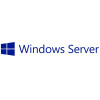KB5026370: Firewall, graphics driver and Microsoft Edge
Improvements
- New! This update changes firewall settings. You can now configure application group rules.
- This update addresses an issue that affects conhost.exe. It stops responding.
- This update affects the Islamic Republic of Iran. The update supports the government’s daylight saving time change order from 2022.
- This update addresses issues that affect the 32-bit version of Windows Calculator.
- This update addresses an issue that affects apps that use DirectX on older Intel graphics drivers. You might receive an error from apphelp.dll.
- The update addresses an issue that sends unexpected password expiration notices to users. This occurs when you set up an account to use “Smart Card is Required for Interactive Logon” and set "Enable rolling of expiring NTLM secrets".
- This update addresses an issue that affects Microsoft Edge IE mode. Pop-up windows open in the background instead of in the foreground.
- This update addresses an issue that affects the software defined networking (SDN) virtual subnet. The delete operation creates an error. This stops the virtual subnet from being deleted.
- The update addresses an issue that affects AzureService Fabric containers. This change is off by default. To enable the change, set Globals.RouteResolutionOrderConfig to TRUE. To propagate the value, move the primary node for VswitchService and SDNAPI. After you set the value, this change will apply to new and current network traffic routes.
- This update addresses an issue that affects protected content. When you minimize a window that has protected content, the content displays when it should not. This occurs when you are using Taskbar Thumbnail Live Preview.
- This update addresses an issue that affects mobile device management (MDM) customers. The issue stops you from printing. This occurs because of an exception.
- This update addresses an issue that affects signed Windows Defender Application Control (WDAC) policies. They are not applied to the Secure Kernel. This occurs when you enable Secure Boot.
- This update addresses an issue that affects the Windows Defender Application Control. The policy that blocks software using a hash rule might not stop the software from running.
- This update addresses an Active Directory Federation Services (AD FS). You might need to retry authentication multiple times to sign in successfully.
- This update addresses an issue that affects accounts that run the Set-AdfsCertificate command. The command fails. This occurs when an account does not have read permissions for the related Distributed Key Manager (DKM) container.
- This update addresses a race condition in Windows Local Administrator Password Solution (LAPS). The Local Security Authority Subsystem Service (LSASS) might stop responding. This occurs when the system processes multiple local account operations at the same time. The access violation error code is 0xc0000005.
- This update addresses an issue that affects the legacy Local Administrator Password Solution (LAPS) and the new Windows LAPS feature. They fail to manage the configured local account password. This occurs when you install the legacy LAPS .msi file after you have installed the April 11, 2023, Windows update on machines that have a legacy LAPS policy.
- This update addresses an issue that affects SMB Direct. Endpoints might not be available on systems that use multi-byte character sets.
Open issues
- After installing this update on guest virtual machines (VMs) running Windows Server 2022 on some versions of VMware ESXi, Windows Server 2022 might not start up. Only Windows Server 2022 VMs with Secure Boot enabled are affected by this issue. Affected versions of VMware ESXi are versions vSphere ESXi 7.0.x and below.


